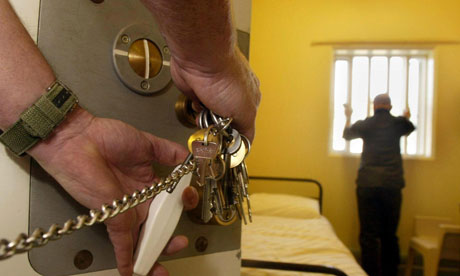Hurst v The UK (2005)
 |
| Picture Credit - The Guardian |
By Vincent Chow
No prisoners
serving a sentence in the UK are allowed to vote. The on-going debate in the UK
concerning the question of whether prisoners should be allowed to vote in elections
can largely be attributed to the European Court of Human Rights ruling in 2005,
that the UK’s disenfranchisement of all prisoners contravenes the European
Convention of Human Rights.
Ever
since that fateful day in 2005, the issue of prisoners’ right to vote has
become a mainstay of the UK political scene. The issue has traversed various
debates, capable of evoking a wide array of discussions ranging from voting
rights and the treatment of criminals, to Parliament’s sovereignty and the
relationship between British European law.
Why
then haven’t any prisoners been given the right to vote since the European
Court’s ruling?
It is
because the Human Rights Act only instructs Parliament to pass legislation that
is compatible with the ECHR (European Convention of Human Rights). The HRA does
not entrench these rights into British law, therefore preserving Parliament’s sovereignty.
This
fact is reflected by the Supreme Court’s dismissals of the appeals of Chester
and McGeoch in October 2013. The two convicted murderers argued that they
should be allowed to vote in European elections, because the ECHR allows them
to do so.
In
his calls for the Supreme Court to dismiss the two appeals, Dominic Grieve, the
Attorney General, argued that the Court is not bound to apply the ECHR to UK
law, only take them into account when ruling on the legality of any UK
legislation.
In
its ruling, the court ultimately agreed with Grieve’s arguments, maintaining
that the issue of prisoners’ right to vote still remains a matter for national
Parliaments: “Eligibility to
vote in member states is basically a matter for national legislatures."
However,
the government has conceded that they must introduce reforms, largely because
of political reasons. They are reluctant to set a precedent where they outright
defy an international convention of which the UK is a signatory of.
This is why there
is currently a draft bill being passed through Parliament, and is being scrutinized
by a cross-party committee. It represents a compromise between MPs who
completely oppose any prisoners being given the vote, and Parliament’s
international obligations to comply with the ECHR.
The Supreme
Court’s involvement in this issue is significant because it illustrates the
awkward position the judiciary is often put into in legal matters where
European law directly conflicts with UK law. The Supreme Court’s ruling on the
two prisoners’ appeals had little to no impact on Parliament. Even though the
Supreme Court ruled that Parliament’s existing ban on prisoner’s voting is
legal under UK law, Parliament is still expected to introduce reforms to allow
some prisoners the vote in order to fulfill European obligations.
No comments:
Post a Comment